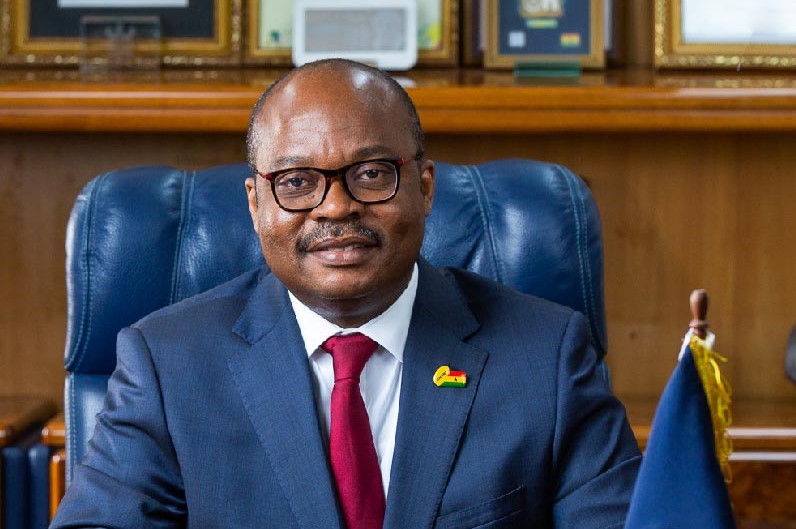
BoG hints of recapitalisation --Savings & loans, others targeted
DEPOSIT taking institutions could be in for another round of capital injection after the unfolding shock from the novel Coronavirus (COVID-19) pandemic promises to erode their capitals and spike their non-performing loans (NPLs), the Bank of Ghana (BoG) has said.
The bank is particularly convinced that a recapitalisation of specialised deposit-taking institutions (SDIs) would be "necessary" to help bolster their resilience and guard depositor funds under their care against losses.
The Governor of BoG, Dr Ernest Addison, dropped the hint in Accra, when he addressed the GIMPA Law Conferences on the topic: 'The Banking and the Financial Sector Crises: Towards Sustainable Reform.'
Keynote address
Presenting the keynote address at the virtual conference that examined the reformation of the banking and the non-bank financial sector by BoG and the Securities and Exchange Commission (SEC), Dr Addison repeated his earlier positions that the clean-up exercise was necessary and had helped to restore confidence, bring resilience and reignited profitability in the financial sector.
He added that the exercise was "by providence," as it had helped to strengthen Ghana's financial sector, "heading into the pandemic".
Going forward though, Dr Addison said the financial sector would require constant regulatory and policy attention to mitigate the risks.
"The economic impact of the pandemic may result in higher NPLs and capital erosion of banks.”
"A recapitalisation of the SDIs will become necessary to improve their resilience and enhance the safety of depositors’ funds," he said at the two-day event that also featured a presentation from the Director General of the Securities and Exchange Commission (SEC), Rev. Daniel Ogbarmey Tettey.
Banks
However, Dr Addison did not say if the central bank was considering a similar recapitalisation exercise for the banks, whose minimum required capital was raised from GHS120 million to GHS400 million in 2018.
In its May 2020 Banking Sector Report, the central bank said a stress test conducted on the sector revealed that banks were generally sound and resilient to liquidity and credit risk shocks emanating from the pandemic.
"However, the robustness of the SDIs subsector to the adverse impacts from COVID-19 has somewhat reduced overtime," the report said.
Buffer
As a buffer against risks, a financial consultant and a retired central banker, Dr Emmanuel Asiedu-Mantle, told the Graphic Business the SDIs needed to be properly capitalised to avoid the risks of the individual institutions using depositors’ funds to fund their losses.
He, however, said any recapitalisation directive should be institution-specific, given the peculiar nature of the liquidity and solvency challenges bedevilling the players.
He added that capital should be treated as one measure to address challenges facing the firms, adding that initiatives such as sanctions, removal of boards and managements were some of the powers that the central bank could use to restore stability and sanity into the SDI subsector.
Recapitalisation journey
Unlike banks that were successfully recapitalised in 2018, attempts to recapitalise players in the SDI subsector have been inconclusive, with issued deadlines missed, leading to extensions.
The S&LCs, which are the first tier players under that category, currently operate with a minimum capital of GHS15 million, an amount that was set more than five years ago.
The MFIs were also directed to recapitalise to GHS2 million by June 2018 -- a directive that has suffered series of postponements until now.
Similarly, an earlier attempt to recapitalise the RCBs to GHS1 million by December 2017 failed, resulting in the date being shifted to February 2020. That date has since been shifted.
SDIs
The Banks and Specialised Deposit-Taking Institutions (BSDI) Act, 2016 (Act 930) defines SDIs to comprise all firms licensed by BoG to take deposits from the public and engaged in restricted financial services.
They include the savings and loans companies (S&LCs), finance houses (FHs), leasing companies, rural and community banks (RCBs), mortgage institutions, microfinance institutions (MFIs) and microcredit companies.
Unlike the banks that target big businesses and the savvy banking public, SDIs finance the majority micro, small and medium enterprises (SMEs), thereby making them an integral part of the financial intermediation process.
BoG reported that in 2019, the subsector's combined assets stood at GH¢12.32 billion, down from the previous position of GH¢16.50 billion.
The 2019 assets represented 8.7 per cent of the entire banking industry’s assets, the central bank said.